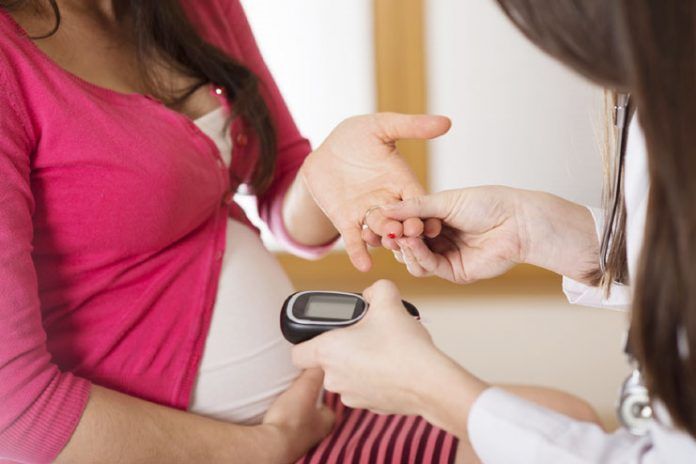Affiliate Disclaimer
Some links in this article are affiliate links. We may earn a small commission if you make a purchase through these links, at no extra cost to you. We only recommend products we find useful to our readersWe all have heard about Gestational Diabetes in the third trimester of pregnancy. While there are no absolute causes of gestational diabetes which can be understood for triggering blood sugar in around 22-28th week of pregnancy, but it still affects around 10% of total pregnancies.
Many of those women who suffer gestational diabetes have never had any sort of diabetes prior to conceiving and infact, they do not continue with diabetes post their delivery.
Gestational diabetes causes can largely be attributed to the hormonal changes within the female body. A series of tests are conducted to check gestational diabetes for pregnant women, which include an initial glucose screening and then finally a glucose tolerance test.
What is Gestational Diabetes?
Gestational diabetes is high blood sugar level which develops temporarily or permanently during the second trimester of pregnancy. It is very common to get GD and not be affected by diabetes at all before and after pregnancy, but Gestational Diabetes requires extreme caution and care for it affects both baby and mom.
Most common cases are recorded for GD around 6th month of pregnancy and that is when the baby growth is at its peak. Gestational Diabetes occurs when our body can not produce ample insulin, a hormone which controls blood sugar levels. As since the needs for insulin multiply during pregnancy the compensation must be adequate in our body else GD is resulted.
Gestational diabetes does not necessarily imply any ailment but rather a mature medical condition where in certain factors cause temporary or permanent dissolution of insulin from the body. And most pregnancies, if taken proper care of, go by normally despite the mother suffering from GD.
While there are no certain parameters or facts that can suggest why GD happened to anyone. But certain contributory factors are believed to cause more GD cases than the rest. These are obesity, old age, GD in family or GD during previous child birth, having pre-diabetes, family history of type 2 diabetes.
Diagnosis of Gestational Diabetes:
Gestational diabetes diagnosis happens usually during second trimester and in some cases if affinity towards GD is substantially high then even before that. Everyone has to undertake a GD test in their third trimester and while the screening is important and mandatory for all the rest of the course of diagnosis of GD is decided after the screening results.
The screening for diagnosis of gestational diabetes is just a basic test to check the level of sugar in our body and the insulin levels to check if sugar is being digested well. A sugar drink is given and a blood test is conducted post one hour of drink at screening. This will help in establishing how the body reacted to the blood sugar levels and were they digested in the system or not.
If the blood sugar levels are Higher say 130mg per decibel or more further tests need to be done. This would lead to a two step blood sugar test comprising fasting and post 3 hour body reaction to sugar drinks. The further test is called GTT or glucose tolerance test.
What Causes Gestational Diabetes in Pregnant Women:
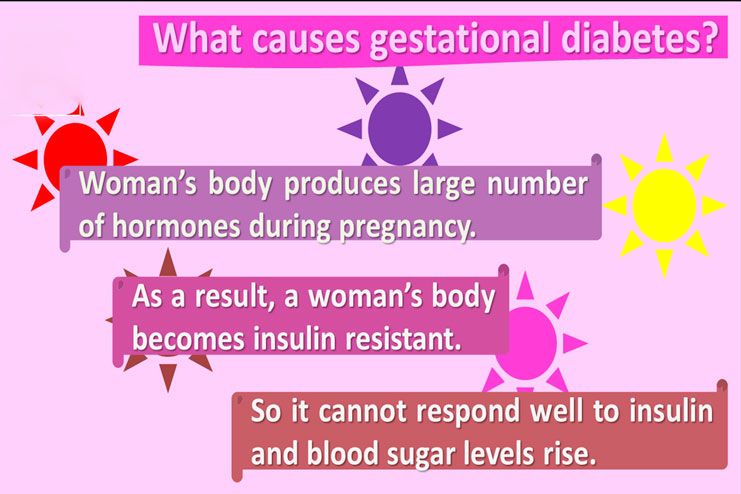

Gestational diabetes is a third form of diabetes after Type 1 and Type 2 which occurs in pregnant women only. There are no signs and symptoms of GD and only tests can determine the level of gestational diabetes in a pregnant women.
Gestational diabetes is largely thought to arise due to the innumerable hormonal changes that are happening in a pregnant woman. These hormonal changes in some women makes them resistant to insulin. Insulin is a hormone secreted by pancreas in our body to regulate and metabolize glucose to turn into energy.
Some More Causes Of Gestational Diabetes Include:
- Overweight before pregnancy which resulted in making it hard for the body to use insulin
- Too much weight gain during pregnancy.
- Family history of Type 2 diabetes specially the immediate blood relatives.
- You can even have prediabetes where in the blood sugar levels are high but not that high like in diabetes.
- You are over 35 when pregnant for the first time
- PCOS or polycystic ovary syndrome also triggers GD in many women
- Some races are more prone to GD like Hispanic, African-American, Pacific Islander.
- You had GD in your previous pregnancies
- You had a still born previously
- You had a baby weighing more than 9 pounds previously
How Do You Get Gestational Diabetes:
Gestational diabetes is prevalent among 2-10% of all pregnancies. And there is not certain criteria as to who get GD but some people are more prone to getting gestational diabetes. When in your second and third trimester of pregnancy, your body may need extra insulin to digest sugars. Insulin is a hormone which acts and digests blood sugars and thus prevents diabetes.
But when your body does not have adequate insulin to digest extra sugars during pregnancy you get gestational diabetes. Many African American, Asian, Hispanic and Native American are more prone to GD. Also, those with previous pregnancy or birth defects are more prone.
How Does Gestational Diabetes Affect The Baby:
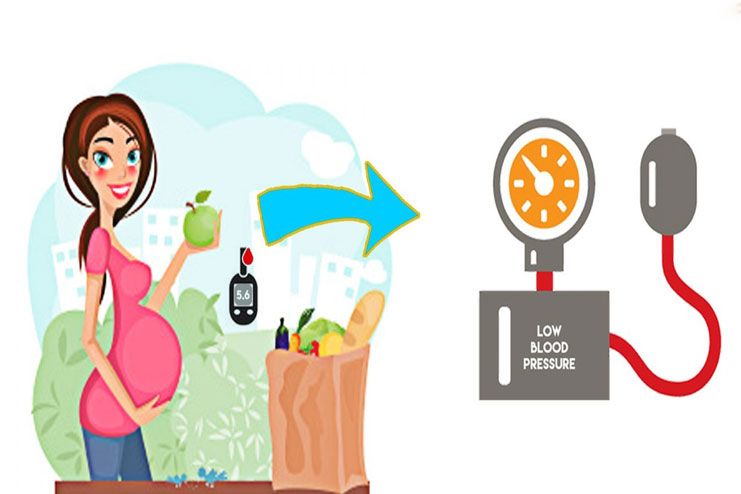

Gestational diabetes can have some serious impacts on the baby if left untreated. Most women after proper treatment and care proceed with normal and healthy pregnancies and deliveries too. But in women who’s blood glucose levels were constantly high throughout the pregnancy the fetus will also have high levels of blood glucose.
High blood sugar level causes the fetus to be considerably large in size thus making the delivery more complicated. Baby is also at a risk of having low blood glucose level or hypoglycemia soon after delivery. There is a serious complication which can arise if gestational diabetes was not controlled properly, that is, the newborn baby is at a higher risk of developing jaundice. The baby is also more likely to have respiratory distress syndrome thus having a higher chance of either being a still born or dying soon after birth.
If the baby has acquired a lot of weight then the delivery can become very complicated. Also, the baby is more prone to have Type 2 diabetes along with obesity in her life.
While both mother and child are at risk of complications if proper care is not taken for GD, but the delivery seems the most critical aspect for a woman having gestational diabetes. Some affects of Gestational diabetes on baby are:
- Since the body of mother stores excess fats than usual the child is larger than normal in size
- Injury at delivery due to larger size
- Jaundice soon after delivery which may require extended stay at hospital
- Pre-term birth
- Temporary breathing problems in child.
- Greater chances of obesity later in life for the child
What Are The Symptoms of Gestational Diabetes:
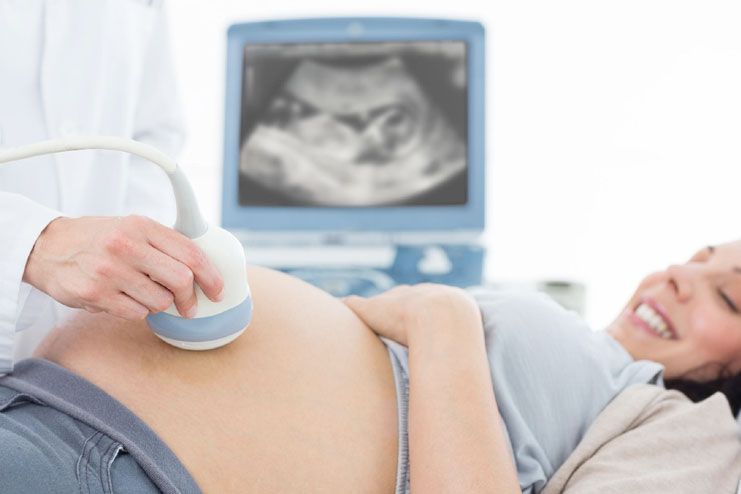

Gestational diabetes generally does not have any symptoms, and all of those which occur are actually the side effects of being pregnant so it is hard to differentiate between the two symptoms.
The only way gestational diabetes symptoms like thirst, urination and hunger pangs can be diagnosed further are through tests conducted in 22-24th week of pregnancy.
Signs and symptoms of gestational diabetes during pregnancy are:
- Increased thirst and urination
- Blurred vision
- Constant fatigue
- Frequent infections around vagina, bladder and skin
- Nausea and vomiting
- Weight loss despite in an increase in appetite.
The gestational diabetes symptoms if found earlier in pregnancy, glucose screening tests and tolerance can be proceeded early on in the pregnancy. Generally in 22-24th week of pregnancy, a women is screened for blood glucose levels and then if she is found affected or positive for the test then a Glucose tolerance test is conducted further to determine the exact situation. Risk factors of gestational diabetes increase post a certain age and also gets triggered by poor lifestyle choices.
How Does Gestational Diabetes Affect Pregnancy:
Mostly women who have GD have normal pregnancies but for some the situation may change drastically. Some problems in pregnancy caused by gestational diabetes include:
- Baby size may get larger than usual as your body had more sugars than it could digest. This may lead to C-Section as normal vaginal birth is difficult for larger baby size
- Too much amniotic fluid in the body can be formed called polyhydramnios which causes the risk of premature delivery
- Premature birth as early as 37th week of pregnancy
- High blood pressure during pregnancy called pre-eclampsia which can cause further complications in pregnancy
- Jaundice in baby soon after delivery
- Still birth is the extreme condition seen in very rare cases due to GD
- Miscarriage is also seen when GD shoots up very high
When You Should Call Doctor If you Have GD:
You must adhere to diet plan for gestational diabetes and never skip any meal. Follow good exercise and activity plan, also keep your blood sugar in check. Some red flags to look out for and see a doctor immediately if suffering from gestational diabetes are:
- If you feel too sick and are not able to follow your diet plan
- Symptoms of high blood sugar are prominent like headaches, blurred vision, weight loss, extreme thirst
- Symptoms of low blood sugar are seen like dizziness, confusion, anxiety, hunger, pounding heart, pale skin, sweating, weakness and more.
- Blood sugar test at home suggest major deviation
- You must rush to ER immediately and contact your OB GYN for the above red flags in gestational diabetes
Risk and Complications of GD for Mother and Baby When Gestational Diabetes is Left Untreated:
While the GD test is compulsory in most countries but it is possible to have GD even before 3rd trimester of your pregnancy which may go unattended. If GD is not treated there are so many risks and complications for both mother and baby, which include:
- Macrosomia: Larger baby which forces induced labor and C-section
- Premature delivery and preterm delivery which leads to complications like jaundice and RDS or respiratory distress syndrome
- Shoulder Dystocia: When during vaginal delivery in case of GD the baby’s head passes through the vagina but the shoulders get stuck behind the pelvic bone, it affects breathing and hurts the baby badly sometimes fatal too
- Baby may get hypoglycemia soon after birth forcing hospital stay
- Miscarriage until 23 weeks and stillbirth are also seen
- Placenta insufficiency: Placenta deterioration or placenta dysfunction are seen in GD which further causes more complications
- IUGR or Intrauterine growth restriction: IUGR is when the grown of baby slows in the uterus known as SGA or small for gestational age.
- Polyhydramnios: Excessive amniotic fluid as seen in ultrasound.
Pre-eclampsia: Where the body is showing signs like swollen feet, blurred vision, pain below ribs, severe headaches, oedema like swelling on face.
How to Control Gestational Diabetes And Diet For Gestational Diabetes:
Gestational diabetes cannot be controlled as such, but treatments may be done to reduce their impact on child and mother. Treatment for gestational diabetes is extremely important as the incidence of complications and issues arising from GD can be reduced drastically with necessary steps.
Major attention is to be paid to exercises and diet, which your OB GYN would recommend for a dietitian. Nutritional modification is extremely important to make right choices of food and not let the blood sugar levels spike.
You may also be required to test blood sugar at least 4 times a day to monitor the daily progress, any red flag must immediately be attended to. Oral medications may also be used for controlling GD in some cases.
Treating Gestational Diabetes:


The first and foremost part of treating a woman with gestational diabetes is to monitor each and every progress all through her pregnancy. Some ways to ensure prevention of gestational diabetes complications are:
1. Diet Plan for Gestational Diabetes:
Pregnancy is a time when you need to eat properly and at every few hour intervals, but it gets complicated with gestational diabetes. Thus for GD, you must meet your dietitian for more details and a chart for a gestational diabetes diet. Avoid bad carbs and consume more vegetables and fibers
Diet plan is much needed if you are diagnosed for GD and you must get it done by a dietitian as at this time you can not take a hit on necessary proteins, vitamins and minerals in your body. Following a proper meal plan can help keep you risk averse in GD. The major points of GD diet plan are:
- Your individual schedules and preferences must be taken into consideration while preparing diet plan for Gestational diabetes.
- Eating short meals spread out over the day is needed
- Variety of food items must be consumed
- Cut down on carbohydrates and sugary items.
- High fiber foods like whole grains must be consumed more
- Do not skip any meal and just stick with a plan.
- Pair lean protein and carbs for all your meals
- Eat a good breakfast
- Use alternative to milk for calcium intake
- Do not give in to your cravings as you may not be granted a single meal of indulgence for you are suffering from GD.
Read More @ Gestational Diabetes Diet And Tips For A Safer And Healthier Delivery
2. Exercise:
Working out is very important for everyone. Specially during pregnancy, you need to be fixed with your daily brisk walk, yoga and other kegel or vaginal stretching exercise.
3. Monitor the Progress Of Your Baby Regularly:
Fetal monitoring helps in checking the size and health of the bay and also take necessary steps in time. Be sure to keep your blood sugar in control and checked regularly
4. Prescription Drugs:
Diabetes medicines or insulin therapy may also be prescribed by your OB GYN if the situation be.
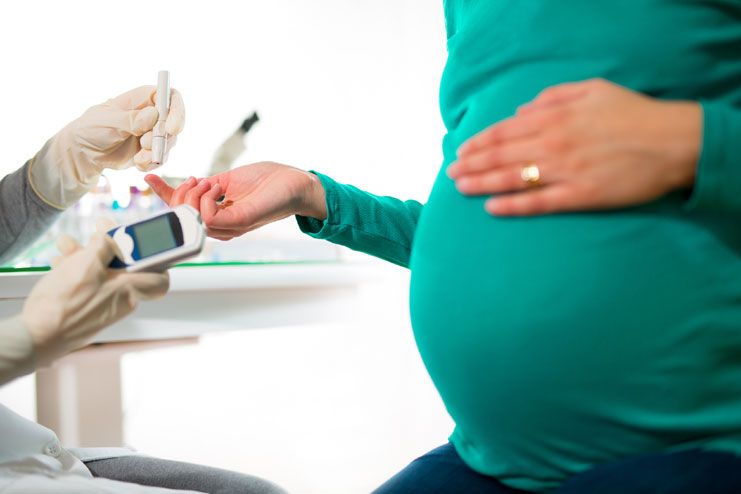

How to Prevent Gestational Diabetes:
There are no guaranteed facts that suggest gestational diabetes can be prevented for everyone. But some improvement in diabetes can help those who are marginally below the red flag. These Gestational diabetes prevention tips include:
- Maintain a healthy weight before pregnancy, as obesity is a factor which plays an important role here
- Stay active and exercise adequately all through your pregnancy.
- Pick the right foods and make right choices for your diet
- Drink ample water and keep your body hydrated
- Get adequate sleep and do not stress too much
- Mention your family history at the first appointment with OB GYN as for any affinity towards GD, preventive steps can be taken early.
To prevent gestational diabetes risk you must have a proper body mass index before conceiving the baby. Eat healthily and get yourself checked up at regular intervals of time. Gestational diabetes can be controlled and you can have a healthy and normal baby if you take proper precautions and GD diet. See your OB GYN for more details and insights on your situation with Gestational Diabetes.
Share ahead and keep writing us, we love hearing from you!



























